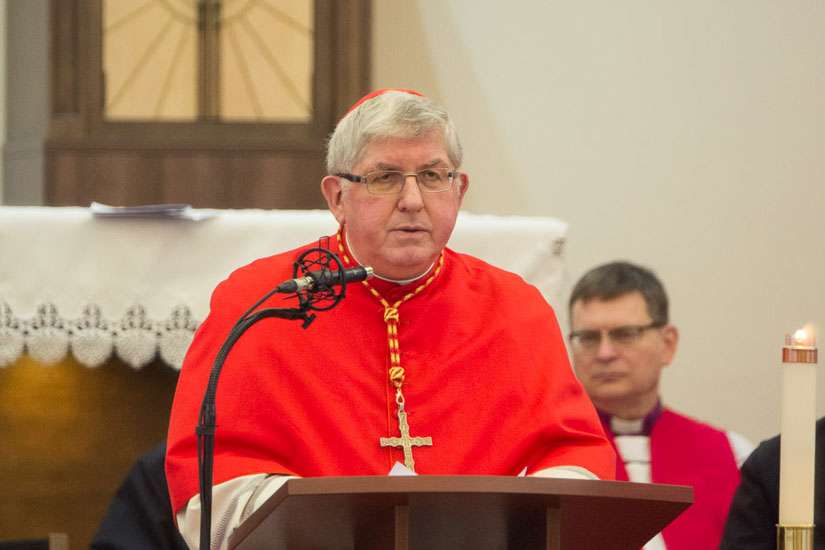The Pope’s clear teaching on the Catholic ideals and his encouragement to pastors to use their best prudential judgment to heal wounds in families and parishes drew high praise from Toronto’s archbishop.
In October, Collins was one of 13 cardinals who signed a private letter to Pope Francis delivered just as the Synod got underway.
“I wrote a private — a personal and confidential — letter to the Pope along with several others about the way in which some of the initial documents of the Synod seemed to be lacking in a lot of what is found in this document,” said Collins pointing to his copy of Amoris Laetitia (The Joy of Love).
The former professor of New Testament and expert in the Apocalypse of John is consoled by the Pope’s insistent and repeated reference to Scripture through Amoris Laetitia. The pre-Synod summation of issues known as an instrumentum laboris lacked a solid scriptural ground, said Collins.
Sharing concerns with the Pope is “one of the chief responsibilities of a cardinal,” said Collins. He would equally expect priests in Toronto to share their concerns with him.
That the October letter was leaked came as a shock.
“I guess you’ve got to learn if you’re in Rome that everything gets leaked,” Collins said. “I just had some specific concerns which I expressed privately to the Pope. I think that’s exactly what he asks us to do.”
In addition to the deep biblical analysis in Amoris Laetitia, Collins praises the Pope’s faithfulness to the Synod process and the words of the Synod fathers.
“He constantly refers to the two Synods,” Collins said. “He presents to us his insights based upon the Synod, based on his own insights and ultimately the faith of the Church.”
Collins is also impressed by the Pope’s prophetic ability to show us where modern culture has run aground.
“(He sees) the profound weakness in the culture based on individualism and ego. He sees narcissism, this inward turning, as a danger to us all and especially to families,” said the cardinal.
Collins praises Pope Francis’ clear and sharp words on euthanasia — a subject Collins has tackled directly in letters to Catholics in the Archdiocese of Toronto, testimony before a parliamentary committee and private meetings with politicians.
“Euthanasia and assisted suicide are serious threats to families worldwide; in many countries, they have been legalized. The Church, while firmly opposing these practices, feels the need to assist families who take care of their elderly and infirm members,” the Pope writes early on in Amoris Laetitia.
Most of all, Collins praises the Pope for bringing prudence into the discussion about marriage and pastoral accompaniment of all kinds of families.
“We are a people who seek to include and not to cast away. Jesus wants us to help people, whatever the situation or weakness, to be integrated as much as possible in the life of the Church,” he said. “This is what is traditionally called the virtue of prudence — wisely applying the principles that guide us in our life to particular situations rather than simply, mechanically imposing rules. It is that personal, loving approach to people, especially anyone who is struggling. Anyway, we’re all struggling.”


